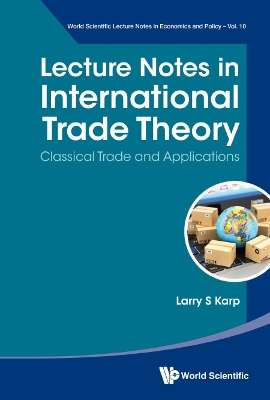World Scientific Lecture Notes In Economics And Policy
1 primary work
Book 10
Lecture Notes In International Trade Theory: Classical Trade And Applications
by Larry S. Karp
Published 19 January 2022
Lecture Notes in International Trade Theory covers classical international trade models (including the Ricardian, Ricardo Viner, and Heckscher-Ohlin-Samuelson models). The course is designed for M.Sc. and first year PhD students. It relies on both graphical and analytic methods, requiring only intermediate microeconomics and a solid grounding in calculus. The material emphasizes 'second-best' settings, where markets are imperfect. The goal is to equip students with a good enough understanding of open-economy general equilibrium relations that they understand how distortions ripple across different markets, e.g. commodity and factor markets. The Author applies these ideas to environmental and natural resource problems, including pollution 'leakage' (where pollution reductions in one country are offset by trading partners' increased pollution) and imperfect property rights. Other applications include the general equilibrium effects of commodity and trade taxes, international transfers (the 'transfer problem'), minimum wage constraints, and immiserizing growth. The Author assumes that students have some experience in formulating and answering comparative statics questions in an optimization setting. Building on these skills, and developing the idea of stability in an equilibrium setting (the Marshall Lerner condition), students learn how to formulate and answer comparative static questions in trade models.
